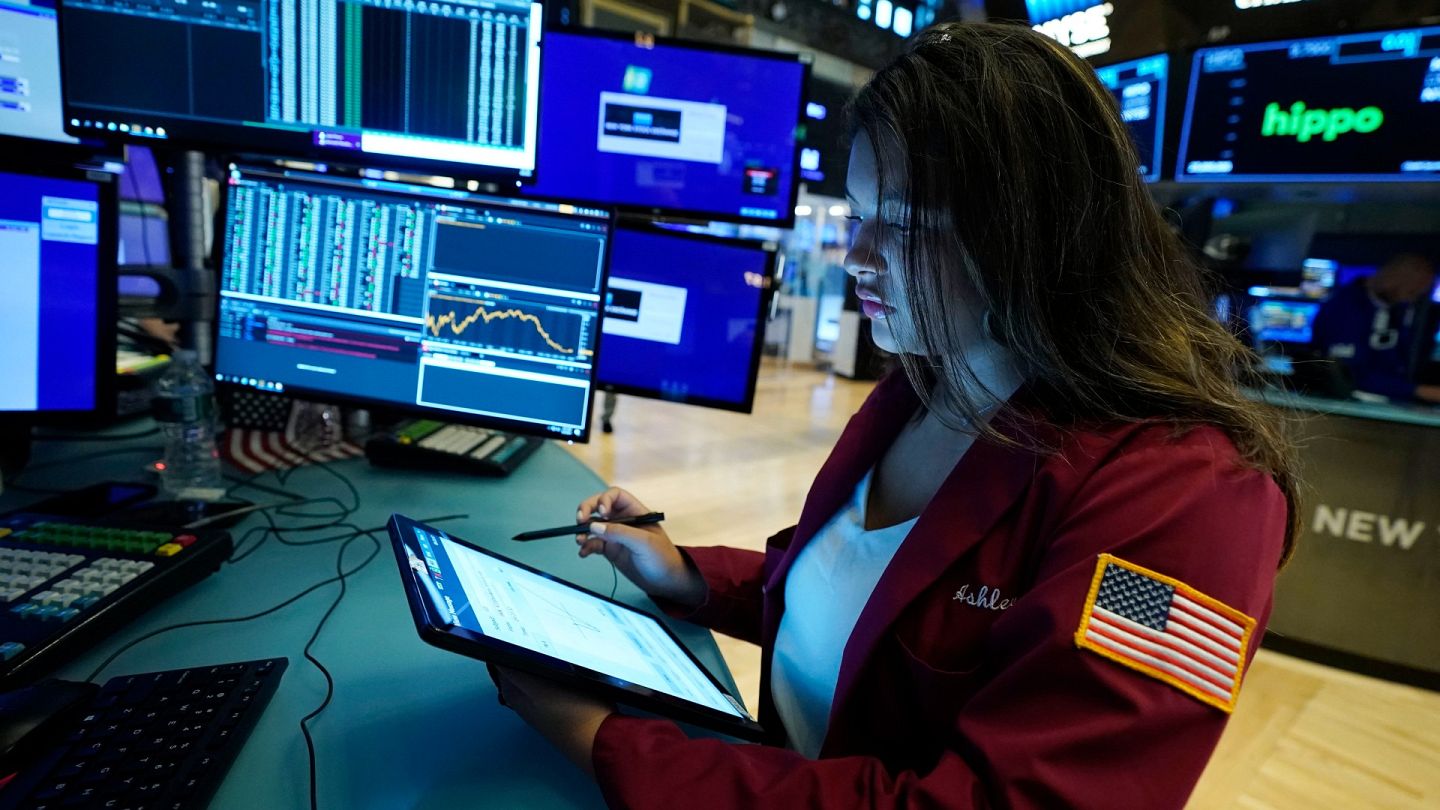Banks couldn't please investors: US stock market is fluctuating.
Reports from major banks like JPMorgan Chase and Morgan Stanley, which were stronger than expected, did not cheer investors.
As Wall Street's dreadful week approached its close, U.S. stocks were shaky on Friday; rising gold prices, the declining value of the U.S. dollar, and movements in other financial markets indicated further fears as President Donald Trump escalated the trade war with China. The S&P 500 index continued its sharp drop, erasing a significant portion of its historic gains from mid-week, falling 0.4% in early trading after Trump paused tariffs on many countries outside China. As of 4:35 PM GMT, the Dow Jones Industrial Average was down 232 points (0.6%), and the Nasdaq composite index also dipped 0.1%. However, such modest movements are unlikely to last throughout the day. As investors try to understand where Trump’s trade war is headed and whether it will lead to a global recession, stocks are fluctuating not just day by day but hour by hour. On Friday, China announced it would raise tariffs on U.S. exports to 125%. This is a retaliation against the U.S. for recently imposing an additional 125% tariff on top of the existing 20% tariff on China. In a statement announcing the new tariffs, a Treasury spokesperson said, "The U.S. increasing its abnormally high tariffs on China in a rotational manner has turned into a number game with practically no economic significance and will become a joke in world economic history." "However, if the U.S. insists on continuing to significantly infringe upon China's interests, China will resolutely counter and fight to the end." The rising tensions between the world's two largest economies could cause widespread damage worldwide, even though Trump announced a 90-day pause on some tariffs on other countries. Gold saw an increase in demand, and U.S. Treasury yields rose. Following the latest tensions, the price of gold rose by more than 2%, reaching $3,250 per ounce (28 grams). Gold is generally regarded as a safe haven that sees increased demand during periods of economic and political uncertainty. However, other assets historically viewed as safe havens are not experiencing the same surge. The value of the U.S. dollar fell again against a range of currencies, from the Euro to the Japanese yen and the Canadian dollar. Essentially, the prices of long-term Treasury bonds, which are U.S. government debt securities, also fell. This contradicts historical trends where Treasury bonds have long been viewed as one of the safest investments possible. The drop in Treasury bond prices caused yields to rise as investors demand more payment in exchange for the risk of holding these bonds. The yield on the 10-year Treasury bond rose from 4.40% late Thursday to 4.50%, up from 4.01% at the end of last week. The increase in yields could be due to various reasons, including foreign investors selling U.S. bonds because of the trade war. Regardless of the reason for the rise, higher yields are increasing pressure on the stock market and raising rates on mortgages and other loans given to U.S. households and businesses. While some of the largest banks in the U.S. reported stronger-than-expected earnings, it did not manage to lift the stock market. JPMorgan Chase, Morgan Stanley, and Wells Fargo reported stronger earnings for the first three months of the year than analysts had expected. JPMorgan Chase rose 1.6%, while Morgan Stanley fell 0.2% and Wells Fargo dropped 3%. Another report showing better-than-expected inflation did not help the overall mood either. This situation could provide the Federal Reserve with more room to cut interest rates if it feels the need to support the economy. Lower rates can help make mortgages and other loans cheaper. However, there are concerns that as Trump’s tariffs take effect in the economy, inflation will feel more upward pressure in the coming months. Meanwhile, overseas indices showed mixed performance globally. In Germany, the DAX lost 1.6%, while in London, the FTSE 100 gained 0.3% after the government announced that the UK economy grew in February. In Japan, the Nikkei 225 fell 3%, while Hong Kong's Hang Seng rose 1.1%.


